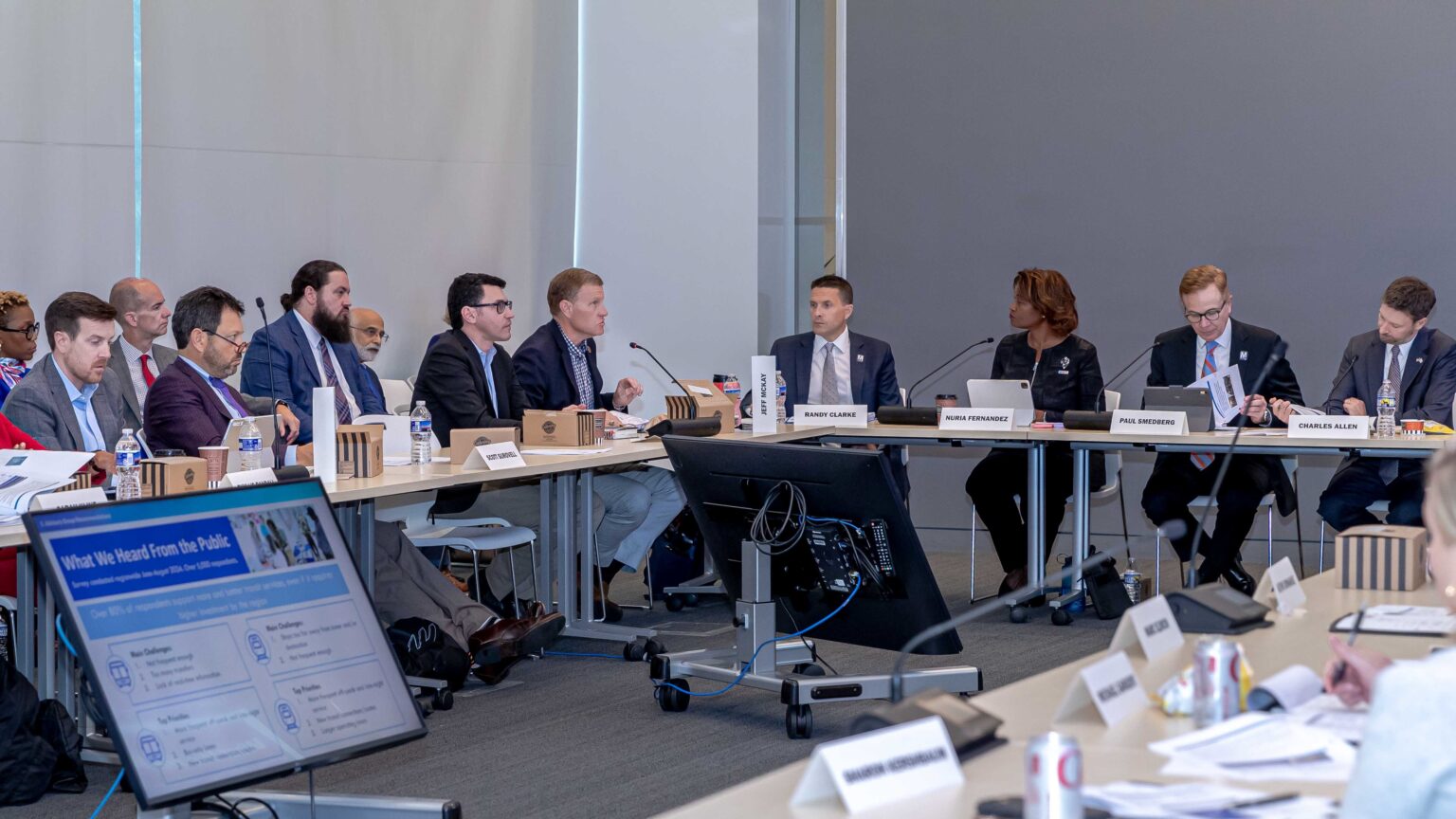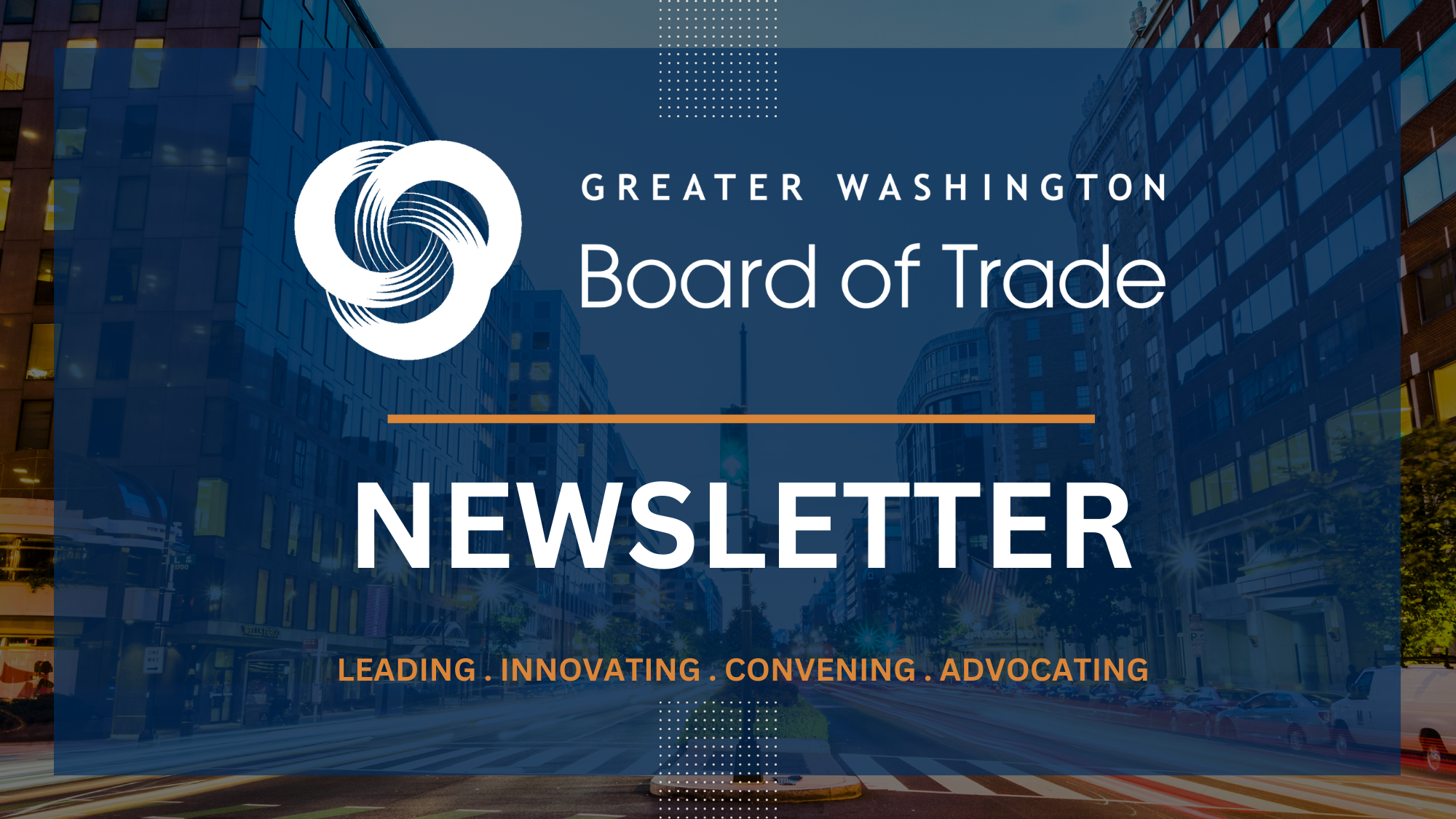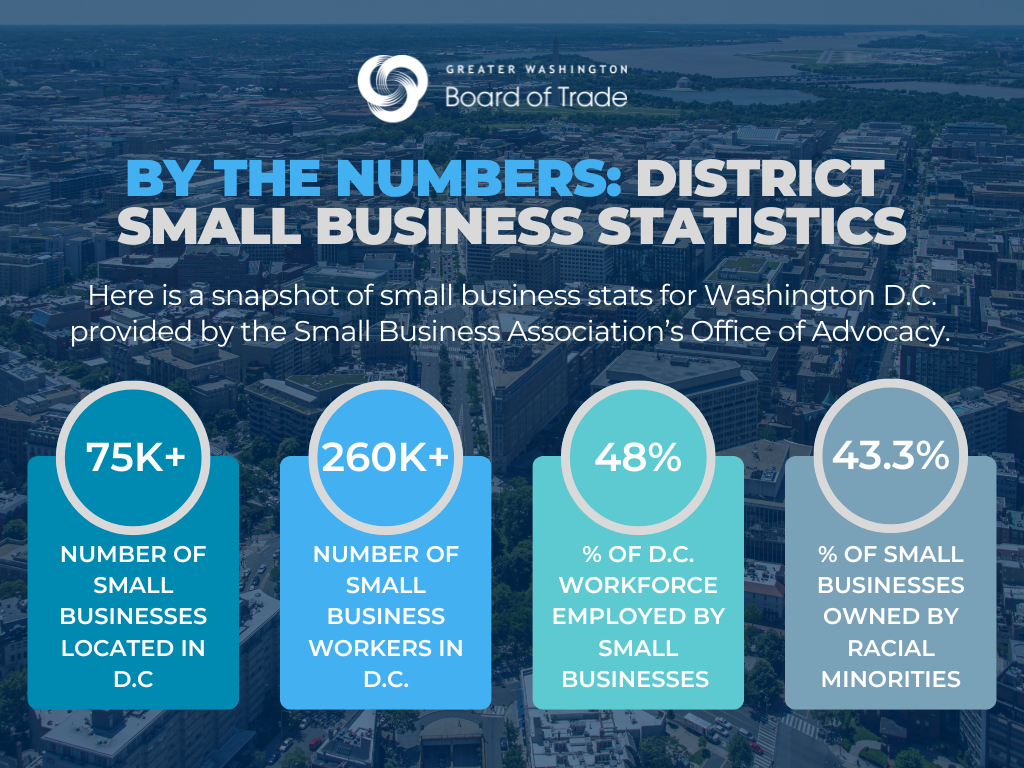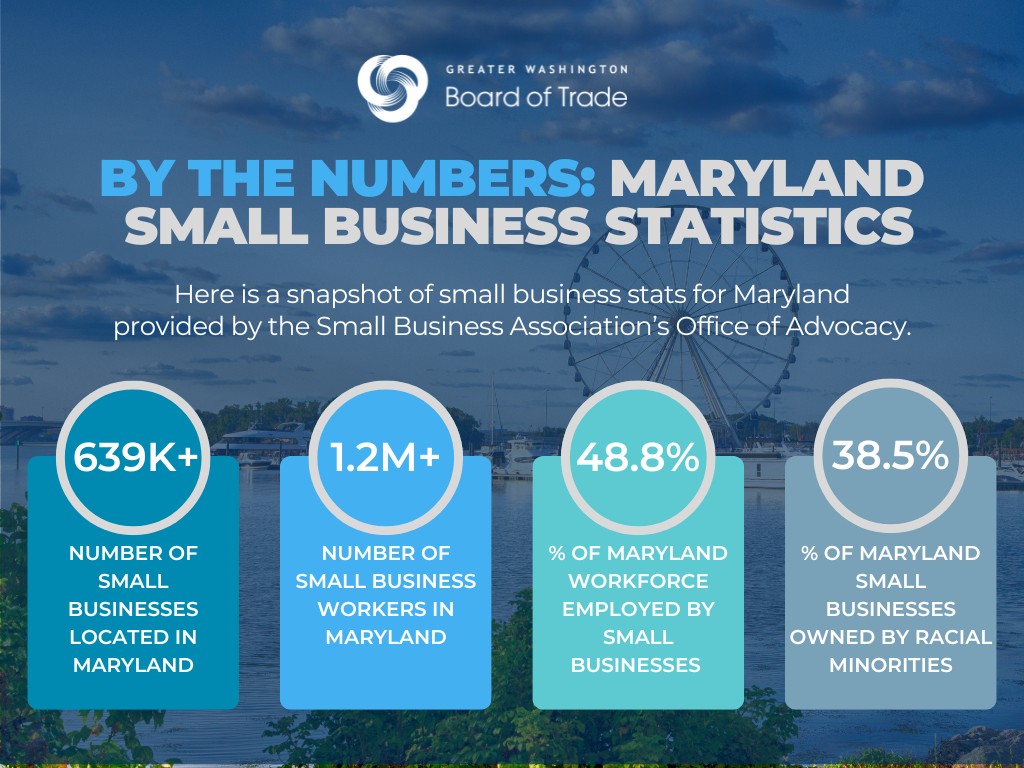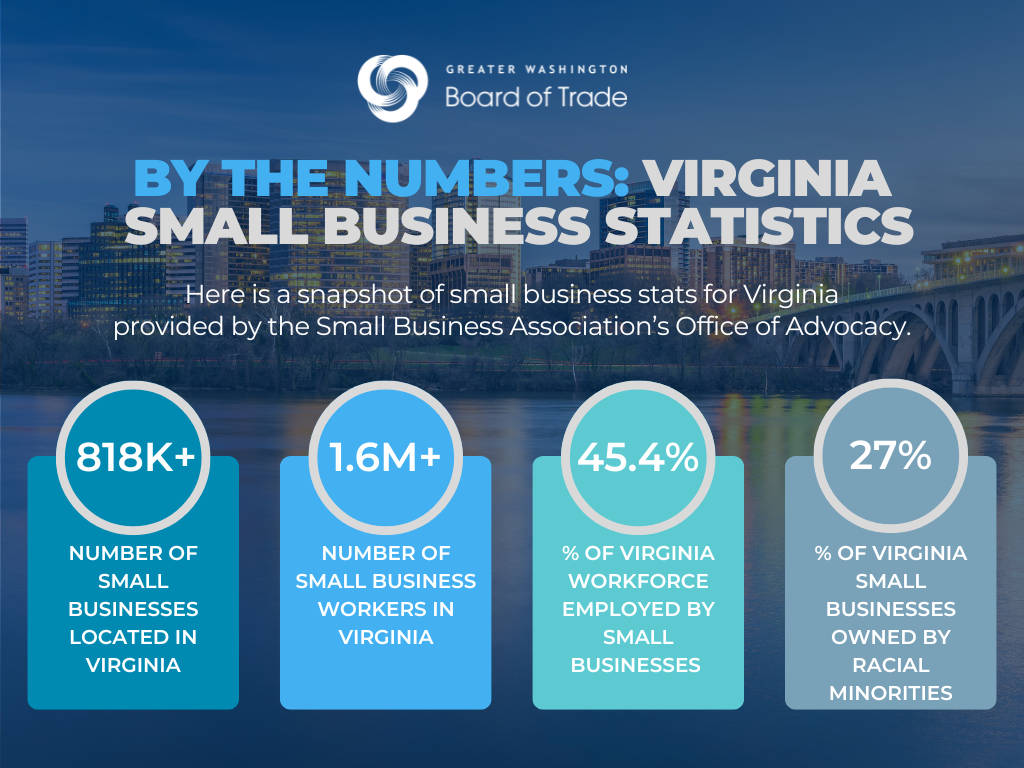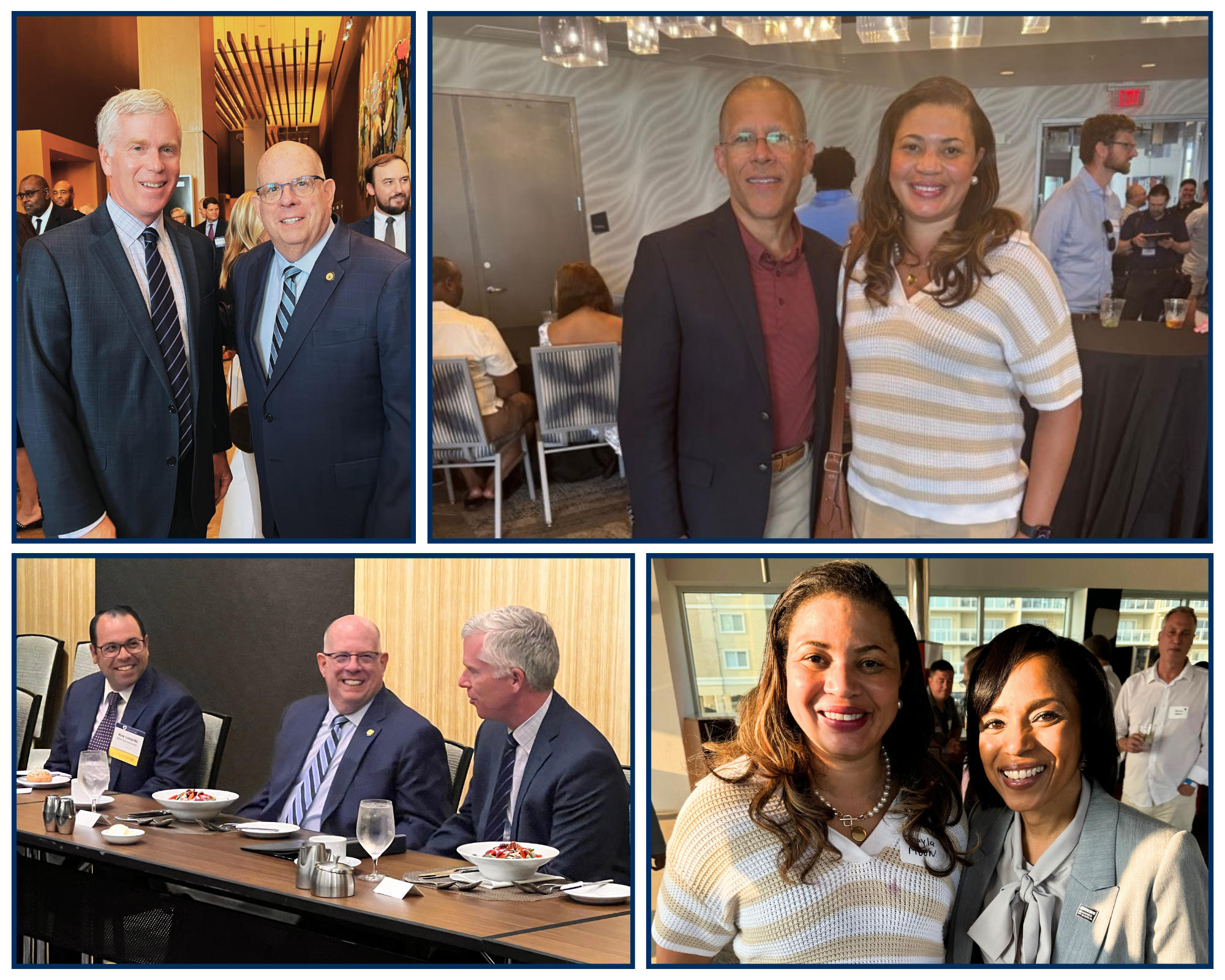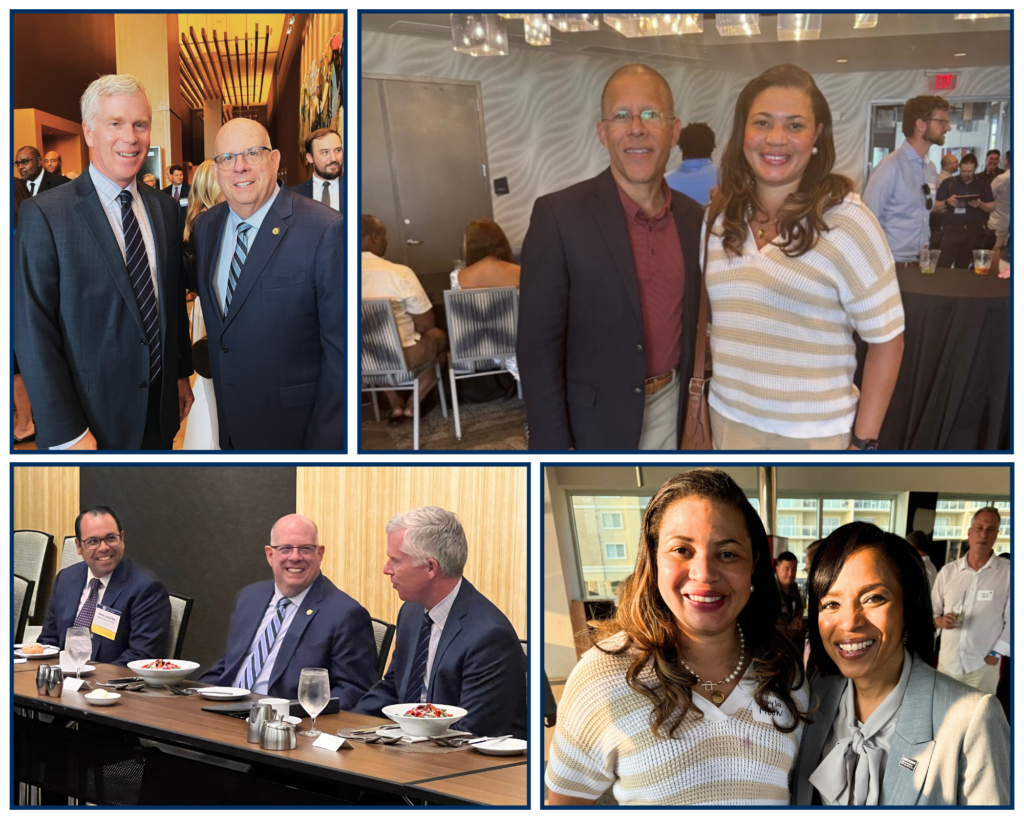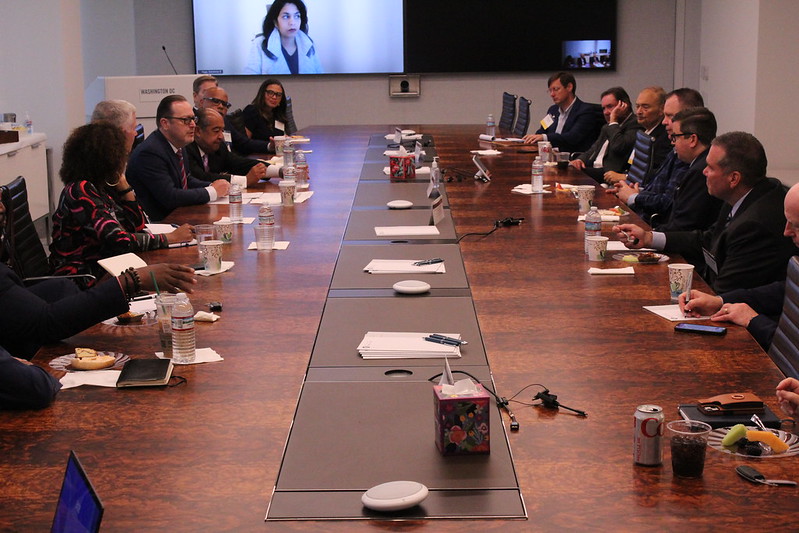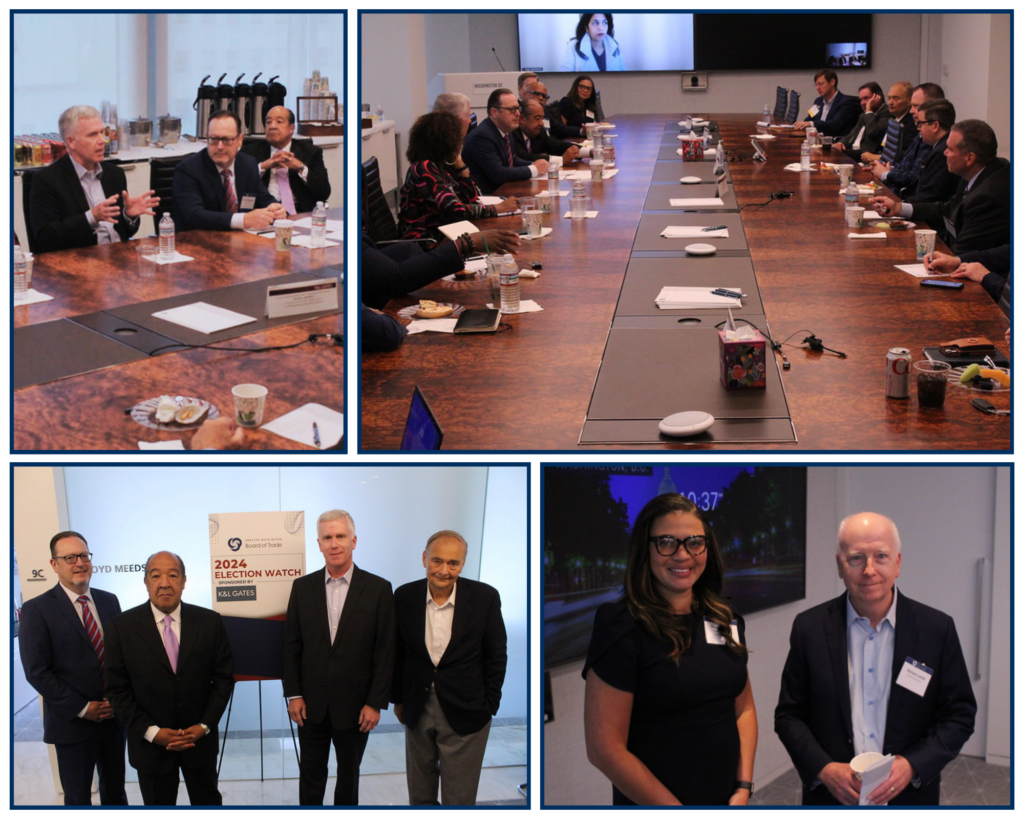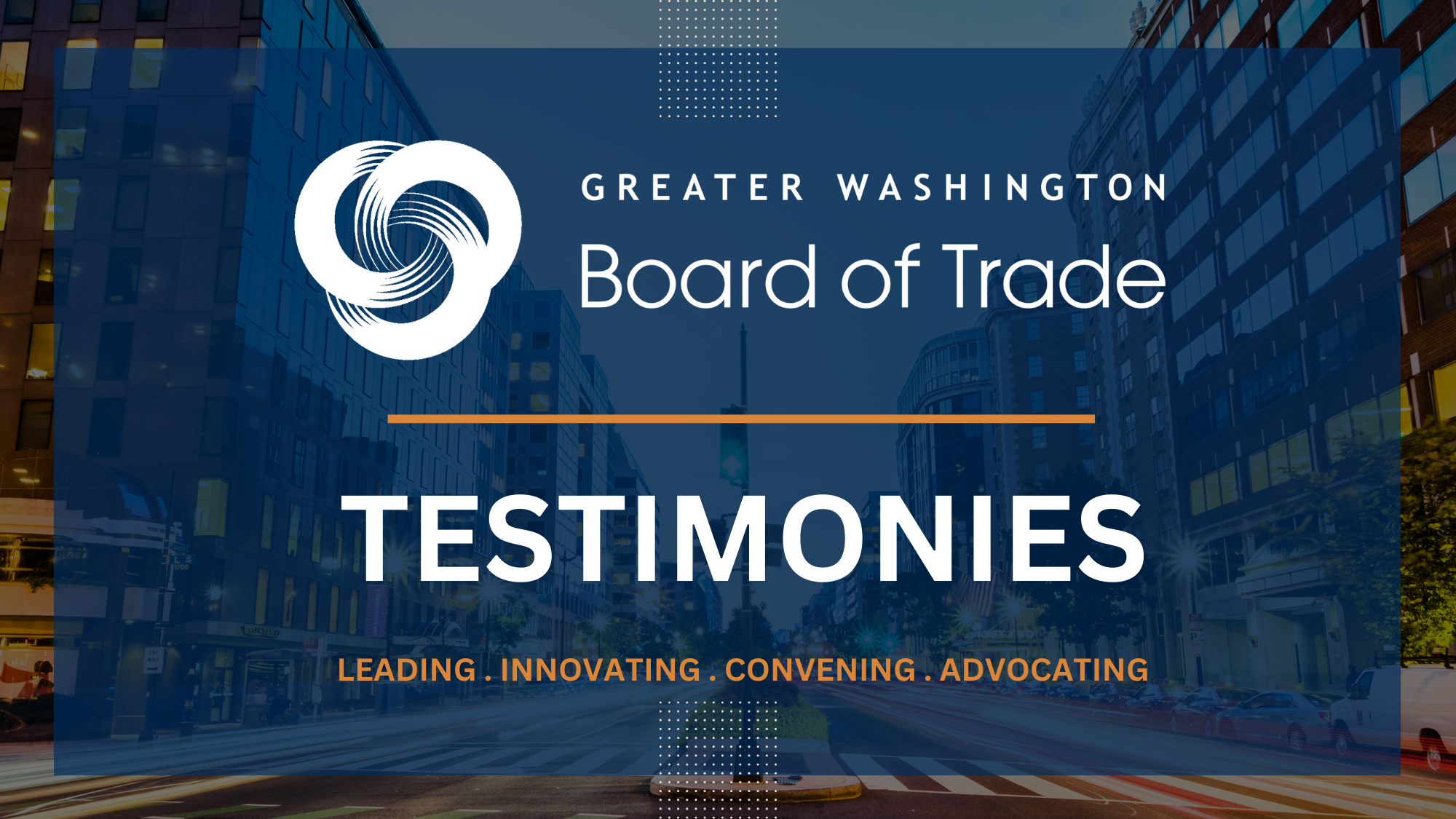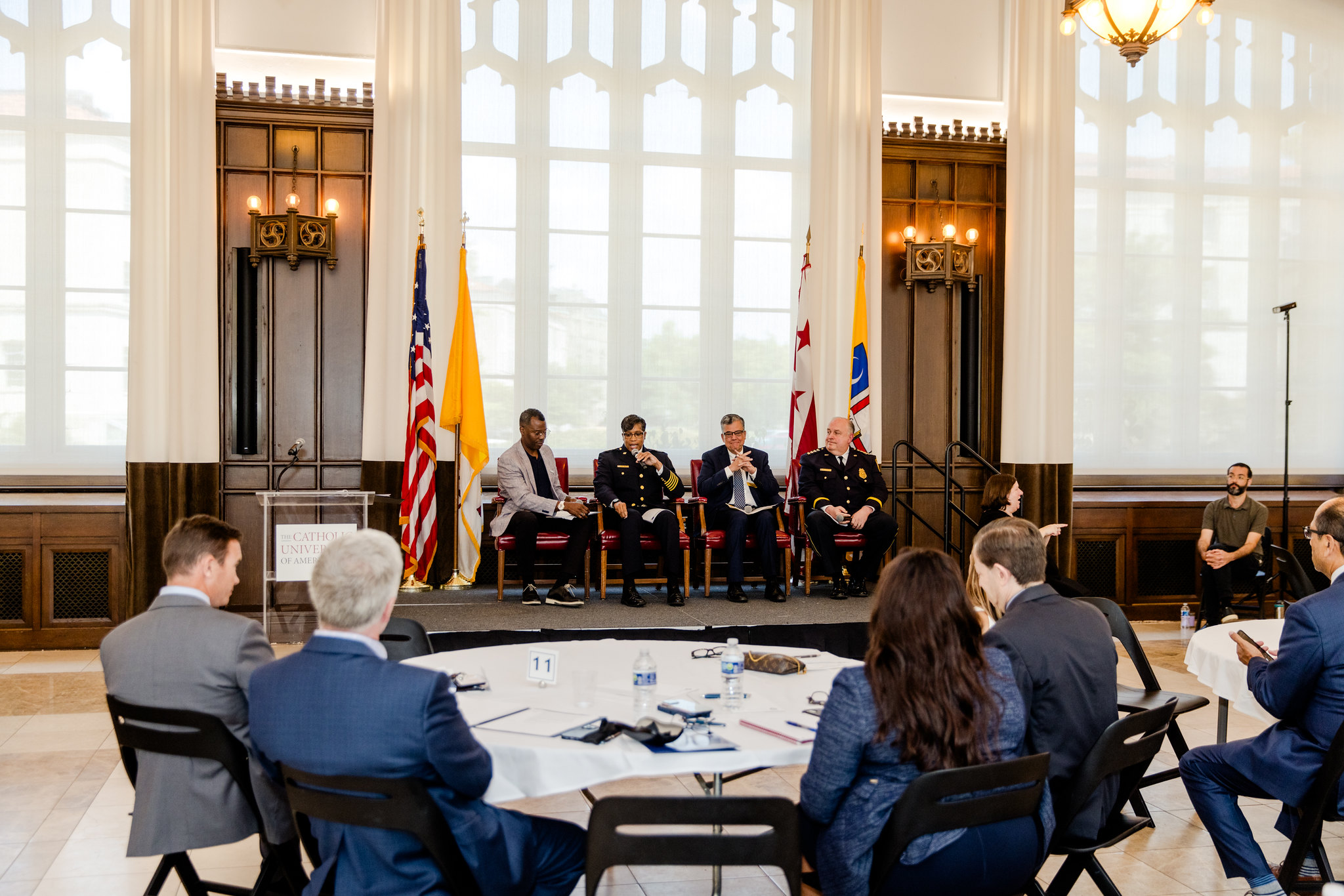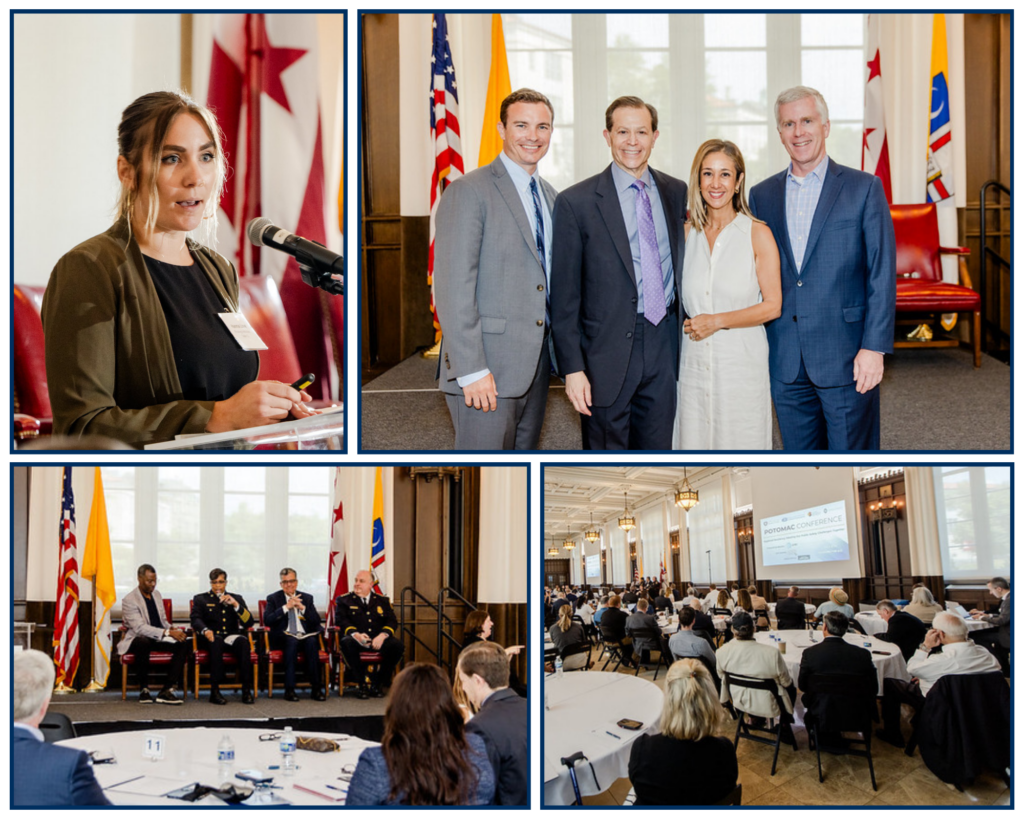The Board of Trade believes it is vital to keep our members and the larger Greater Washington community informed on how policy and legislation can impact regional business. Some new laws in the DMV (Mostly in Maryland) take effect on October 1, with some having direct impact on how businesses interact financially with employees.
Below is a look at a variety of laws that take effect on October 1 that our policy team at the Board of Trade has collected:
Maryland
H.B. 602 – The bill amends the Maryland Equal Pay for Equal Work Act to expressly incorporate the prohibition of sexual orientation discrimination. 2024 Regular Session – House Bill 602 Third Reader (maryland.gov)
SB 413 – Employers cannot discriminate or engage in harassment, based on military status. Discrimination includes a failure or refusal to hire, discharge, or otherwise discriminate in compensation or terms, conditions, and privileges of employment. 2024 Regular Session – Senate Bill 413 Enrolled (maryland.gov)
SB 38 – Employers will be required to include additional information on employee’s pay stubs and pay statements. Employers will be required to include:
- Employers name (as registered with the State), address, and telephone number;
- Date of payment;
- Pay period start and end dates;
- Number of hours worked during pay period (unless employee is exempt from overtime pay);
- Rate of pay;
- Bases of pay (including bonuses, commissions on sales, etc.);
- Piece rates of pay and the number of pieces completed at each rate (for each employee paid at a piece rate);
- Gross and net pay earned during pay period;
- Amount and name of all wage deductions.
- Employers that fail to comply with the requirements of the law are subject to an administrative penalty of up to $500 per affected employee.
HB 0649 – In public and internal position postings, employers must provide a good faith wage range and general description of benefits, and any other compensation offered. A wage range is defined as “[t]he minimum and maximum hourly rate or minimum and maximum salary of an individual holding a comparable position at the time of the posting; or the budgeted amount for the position.”
- If the position was not made available to an applicant, the information must be disclosed before a discussion of compensation is held or upon request of the applicant. Employers may not refuse to interview, hire, or employ an individual because they inquired about information in accordance with this law.
Washington D.C.
Clean Hands Certification Economic Expansion and Revitalization Amendment Act of 2024:
- As of October 1, 2024, the amount of delinquent taxes, including penalties and interest, that will disqualify an applicant from receiving a certificate of cleans hands will increase from $100 to $1,000.
Real Property Tax Amendment Act of 2024:
- As of October 1, 2024, residential real property previously classified as Class 1 will now be classified as either Class 1A or Class 1B. Class 1A property is any non-transient, residential property that is not included in the definition of Class 1B property. Class 1B property is non-transient residential property with no more than two dwelling units. It includes mostly single-family homes, properties receiving the senior/disabled tax relief, and up to two contiguous condominium units with common ownership. (Short-term, licensed rentals of such properties do not affect their Class 1A or Class 1B status.)
Recordation Tax: The purchase price for a residential property eligible for the reduced rate of recordation tax for first-time homebuyers for tax year 2025 (beginning October 1, 2024) shall not exceed $753,000.00. The income ceilings for households of such properties are also adjusted for the change in the consumer price index. These changes will be reflected in the application form for tax year 2025.
Cigarettes and Other Tobacco Tax:
- Cigarettes: There is no change to the cigarette tax, which remains at $5.03.
- Other Tobacco: The tax rate on other tobacco products will decrease from 79 percent of wholesale sales of other tobacco products to 71 percent of wholesale sales of other tobacco products. Additionally, the rate for little cigars remains at $0.2515 per little cigar.
Motor Fuel Tax:
- The motor fuel surcharge will increase from $.114 to $.118 per gallon on the sale of gasoline, gasohol, and other motor vehicle fuel. This surcharge is in addition to the $.235 tax on the sale of gasoline, gasohol and other motor vehicle fuel.
Information on these tax updates in Washington D.C. were provided by D.C.’s Office of Tax and Revenue.
Virginia
HB 1186. Department of Conservation and Recreation; two-year pilot program; all-terrain power wheelchairs in state parks:
- The law provides that the Department of Conservation and Recreation shall establish a two-year pilot program beginning October 1, 2024, and ending October 30, 2026, to enhance accessibility for individuals with limited mobility in Virginia’s state parks by providing all-terrain power wheelchairs that may be used by such persons during their visits. The law permits the Department to choose the locations for the pilot program and enter into a contract for the purchase of all-terrain power wheelchairs to be used in the pilot program. The law allows the Department to adopt guidelines to administer the pilot program and requires the Department to make a report available to the public regarding the outcome of the pilot program on its website by November 1, 2026.
HB 1475 Uniform Statewide Building Code; certain building owners and operators to supply cooling and heating:
- Board of Housing and Community Development; Uniform Statewide Building Code; building owners and operators to supply cooling by April 1 and heating by October 1. Directs the Board of Housing and Community Development to evaluate revisions to the Uniform Statewide Building Code to require that owners and operators of certain apartment buildings begin to supply cooling by April 1 and heat by October 1 of each year to maintain certain temperatures. Under the current regulations, such cooling period begins May 15 and such heating period begins October 15.


